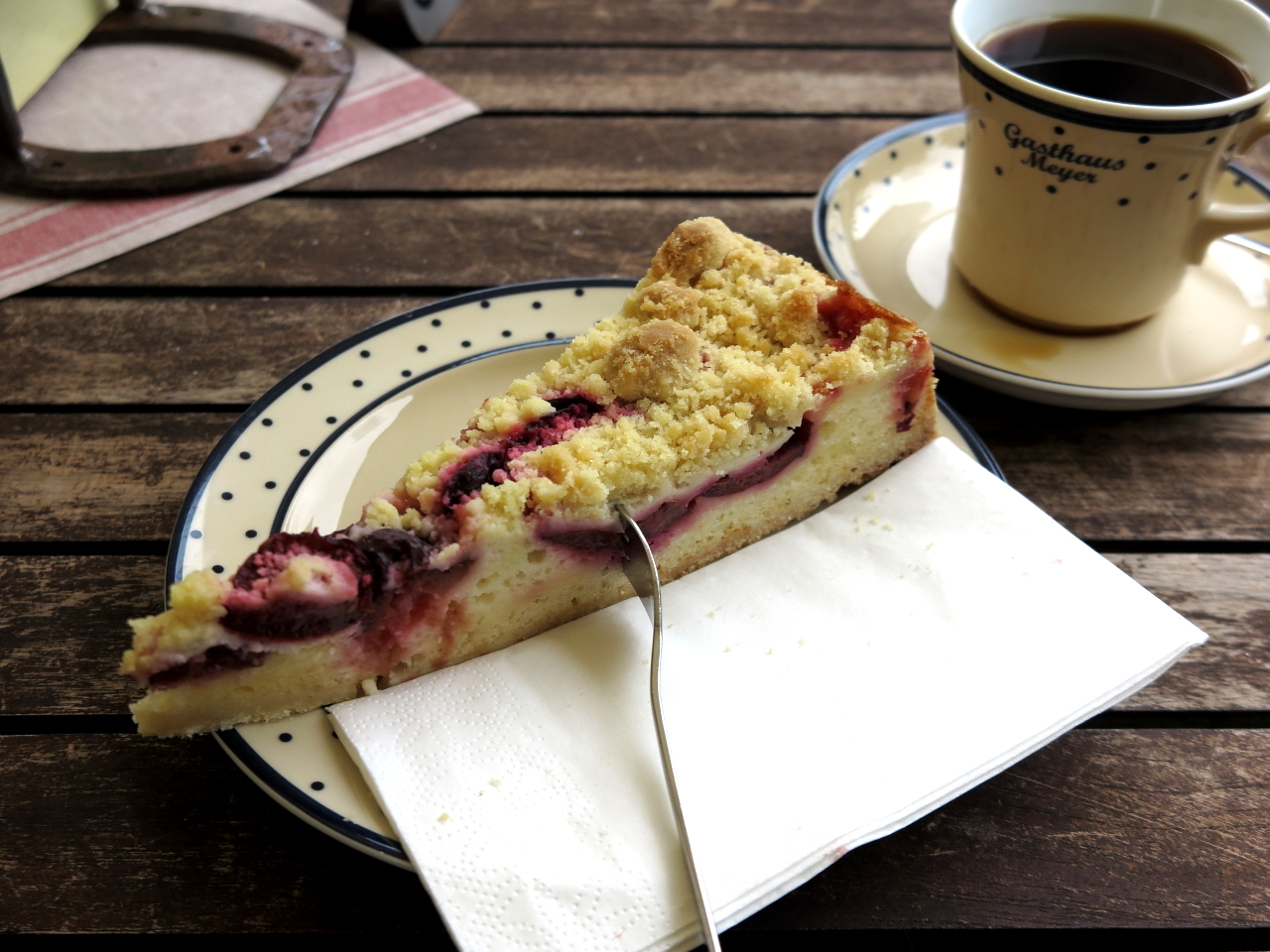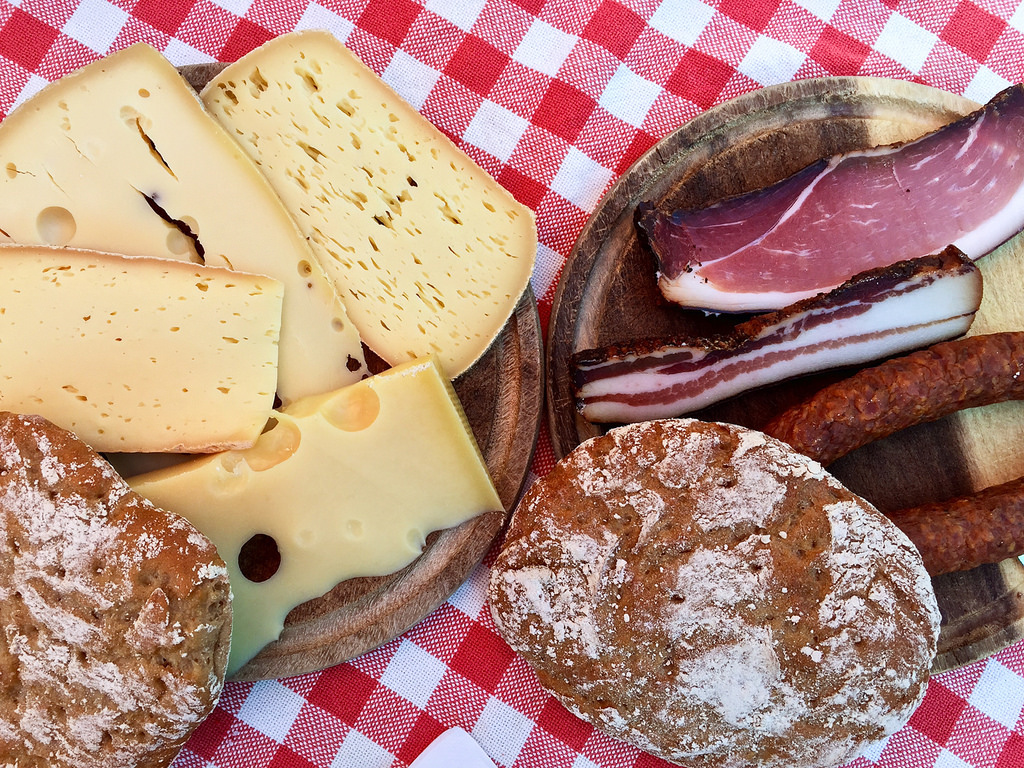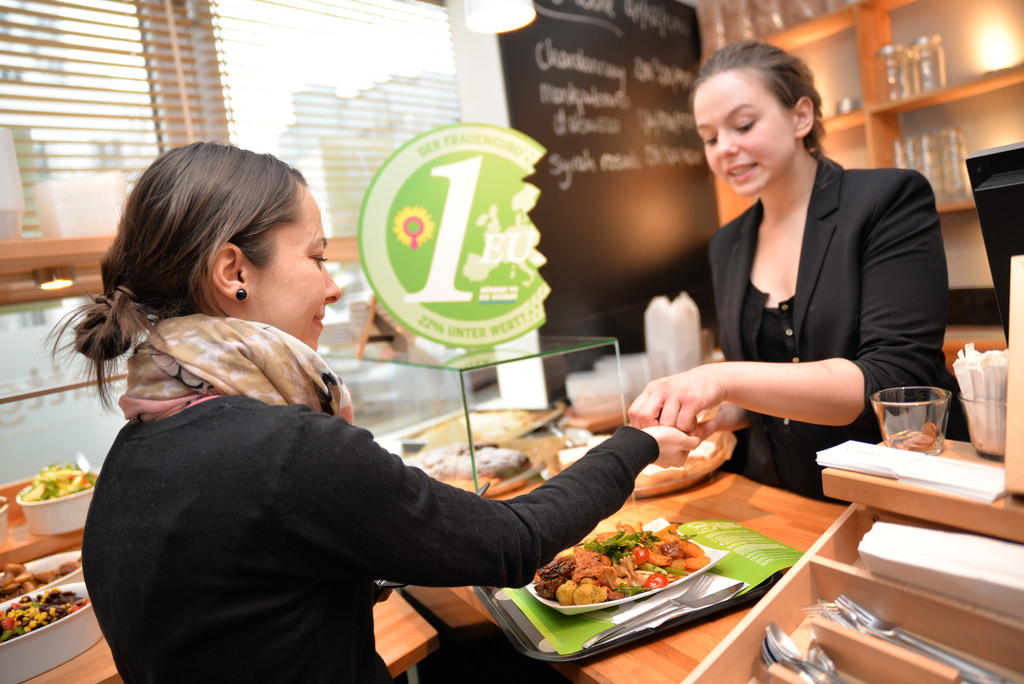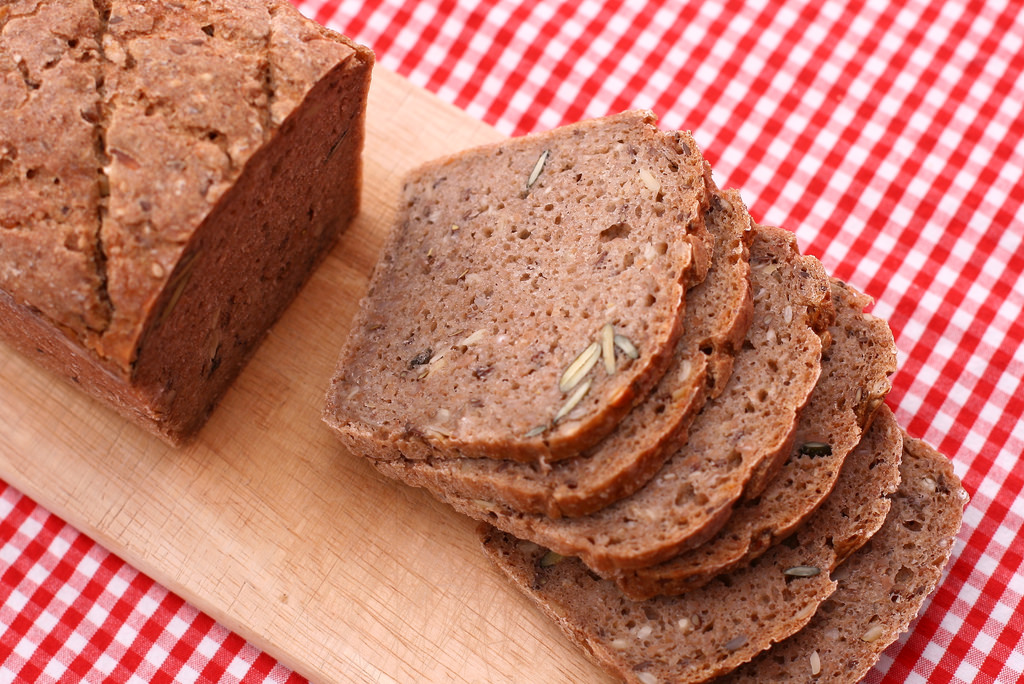Food and Drink: Daily Meals
Church bells in German villages ring at 8 am, 12 pm, and 6 pm, marking the end of breakfast and the start of lunch and dinner, respectively. Historically, church bells marked the rhythm of work and mealtimes for workers or farmers who did not have watches or clocks.
Breakfast
Germans live by the belief that breakfast is the most important meal of the day. Breakfast is typically eaten between 6 am and 8 am; it is a hearty meal of breads, pastries, butter, and jams as well as cheeses and cold cuts. Sliced tomatoes and hard-boiled eggs round off the spread. German breakfast is distinguished from other continental European breakfasts by a preference for thick, whole grain brown breads like pumpernickel and bread rolls. For lighter and quicker breakfasts, Germans also eat muesli, often with yogurt or fruit, or they stop at a nearby bakery to pick up a belegtes Brötchen, a bread roll with meat or cheese, or a chocolate or fruit pastry like a Schokobrötchen or Obstplunder.
Snack
A mid-morning snack called Frühstückspause (breakfast break) is typically eaten around 10am, which is often a slice of bread, pastry, or piece of fruit. Between lunch and dinner, Germans might make room for Kaffee und Kuchen (coffee and cake), which is a social snack shared with friends and family, particularly on the weekends. Coffee and cake are also an integral part of any social gathering held in the afternoon.
Lunch
Lunch is traditionally the single warmes Essen, or cooked meal, of the day. Historically, workers would return home at 12pm sharp for a warm meal complete with soup, salad, a main dish of meat, potatoes, and vegetable, and a dessert. However, due to work schedules, commuting, and the broad inclusion of women in the workforce, it is no longer feasible for many Germans to have lunch at home. Today, many workers eat warm meals at their workplace cafeterias, or get a sandwich, sausage, or Döner Kebab from a local Imbiss (snack stand).
Dinner
Dinner is eaten at 6pm sharp and is traditionally a second Brotzeit, or bread-time, featuring the same breads, spreads, cheeses, and cold cuts served at breakfast. As a rule, dinner should be fast and easy to prepare and should not require cooking. This rule, however, is beginning to change as mealtime habits shift away from lunch to dinner as the main, cooked meal of the day.
Article written for World Trade Press by Carly K. Ottenbreit.
Copyright © 1993—2025 World Trade Press. All rights reserved.

 Germany
Germany 


